'Midnight Mass': Zach Gilford's 3 best scenes
The Netflix series taps into what makes the 'Friday Night Lights' star a magnetic force.
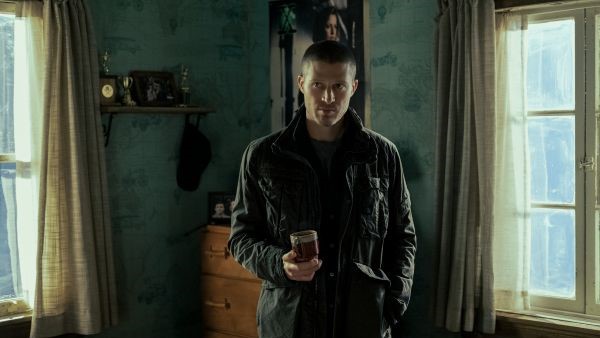
The latest updates, reviews and unmissable series to watch and more!
You are now subscribed
Your newsletter sign-up was successful
Want to add more newsletters?

ONCE A WEEK
What to Watch
Get all the latest TV news and movie reviews, streaming recommendations and exclusive interviews sent directly to your inbox each week in a newsletter put together by our experts just for you.

ONCE A WEEK
What to Watch Soapbox
Sign up to our new soap newsletter to get all the latest news, spoilers and gossip from the biggest US soaps sent straight to your inbox… so you never miss a moment of the drama!
This post contains detailed spoilers for Midnight Mass.
In a Mike Flanagan limited TV series, you will begin to recognize certain faces (even when wearing aging makeup), and much like fellow horror enthusiast Ryan Murphy, there is an acting troupe quality to the large ensemble gathered. Returning performers are joined by a new bevy of actors as Midnight Mass, Flanagan's latest Netflix series, includes a mix of Flanagan favorites and otherwise established faces. Hamish Linklater delivers a blistering turn as a Catholic priest who is more than he seems and Zach Gilford plays a returning resident who left Crockett Island to live it up in the big city and ended up in prison.
Gilford’s most recognizable role before taking on Riley Flynn in Flanagan’s passion project was as Friday Night Lights quarterback sweetheart Matt Saracen. The critically beloved series set in a small Texas town finally got some Emmy Awards attention in its later seasons, but Gilford missing out on a nomination for “The Son” still stings. Considering the Emmys did nominate this episode in the writing category makes it a snub to remember, even a decade later.
In this season 4 episode, Saracen has to bury his father — who died in combat while serving in Iraq — and reconcile his complex feelings for a man whose absence left a strong impression. FNL is renowned for packing an emotional punch and Gilford certainly lived up to the words on the page and then some. Throughout the series, Saracen is often quiet and reluctant to air his grievances: it speaks volumes when his emotions pour out. A tendency to unleash a crooked smile when you least expect it is also his superpower and one he wields to great effect.
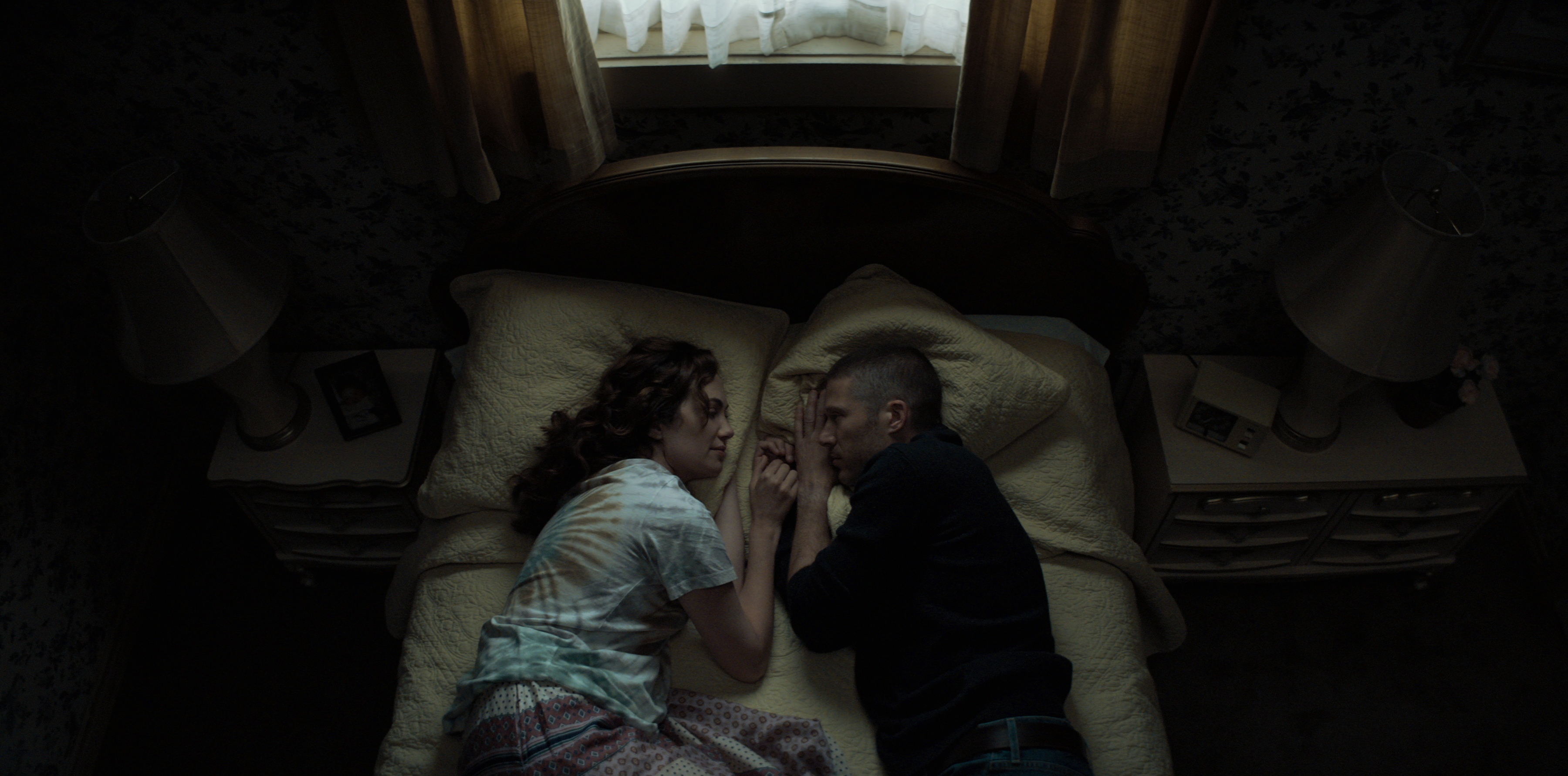
Since FNL ended in 2011, Gilford has regularly found work on TV in shows like Good Girls, The Mob Doctor and Off the Map, but nothing has come close to capturing his ability to cut through the emotional core quite like his five-year stint in Dillon, Texas. That is until now, with Riley Flynn on Midnight Mass like Matt Saracen’s more melancholic twin.
Much like Dillon, this is the kind of community that knows the tiny details of your life, and a prison stint isn’t going to go unnoticed — particularly when the island only boasts a population of 127 souls. A strained relationship with his father Ed (Henry Thomas) began long before he left for the first time and coming home is met with trepidation. He is also haunted by the specter of the young woman he killed while drunk driving, and this guilt hangs around his neck. There is no confessional that can dish out enough Hail Marys or Our Fathers for him to forgive this reckless act and he is one islander who has lost his faith in God.
Midnight Mass slowly unravels to reveal the particulars of its supernatural story, but its meditations on faith are present from the jump whether depicting religious fervor or someone who no longer believes. Set in the period from a few days before Ash Wednesday and going through to Good Friday, rituals are woven into this tapestry that takes time to savor sermons and conversations centering on two voices. In this setup, Gilford is paired off with Erin Greene (Kate Siegel), a friend from childhood who doesn’t shun him in his town pariah guise, and the new priest Father Paul (Linklater), who wants to offer spiritual guidance despite Riley’s lapsed faith. Both Erin and Father Paul have a huge impact on Riley’s journey and Siegel and Linklater are terrific scene partners opposite Gilford who always imbues humanity into a scene — no matter how outlandish the scenario.
The latest updates, reviews and unmissable series to watch and more!
Here are Zach Gilford’s defining Midnight Mass scenes.
AA Meeting (Episode 2, “Book II: Psalms”)
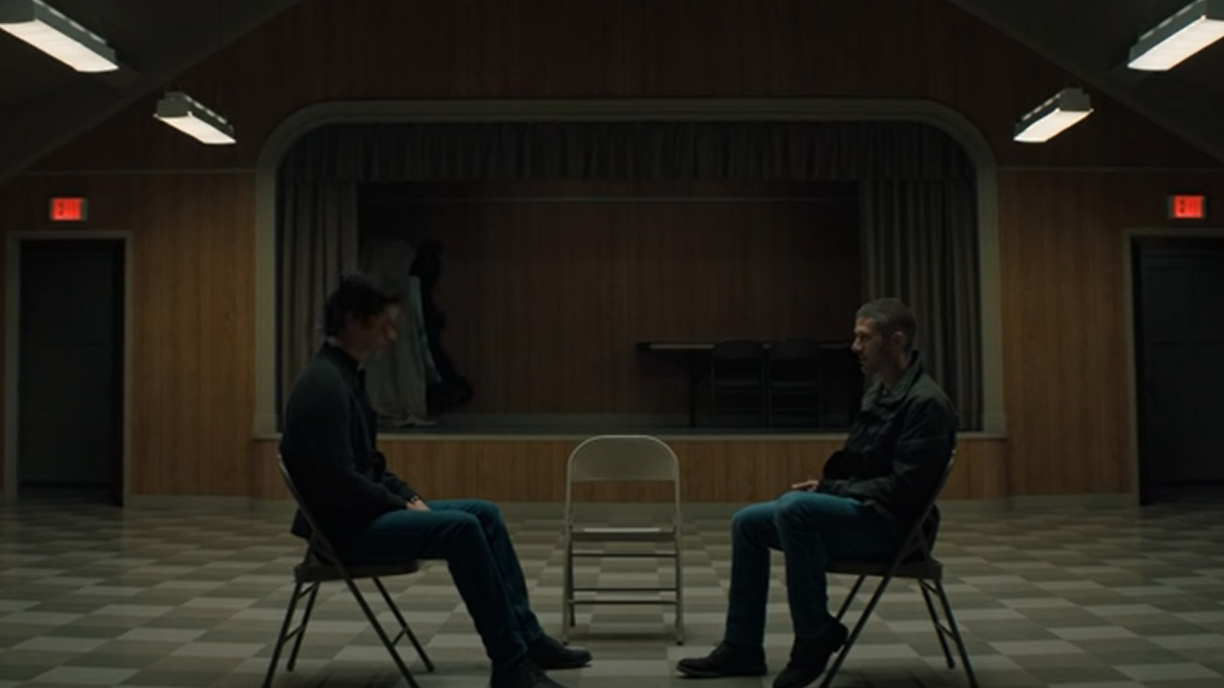
“Not exactly in a state of grace right now,” is how Riley describes himself when he is introduced to Father Paul after not taking part in Holy Communion. Later on, Riley will find out that Crockett Island newcomer Father Paul is in fact Monsignor Pruitt, who he served as an altar boy for many years previously, but for now Father Paul’s interest in Riley is based on this initial meeting.
At the Easter Festival in “Book II: Psalms,” Father Paul tells Riley he will open up an AA chapter so he doesn’t have to keep heading to the mainland for his court-mandated sessions and because it will set a good example of the island’s troubled alcoholic Joe (Robert Longstreet). And for a show that loves one-on-one conversations — which no doubt helped with COVID filming protocols — this rec center setup allows Flanagan to get to the heart of Midnight Mass’s themes early on.
Riley airs his distaste regarding how much the church spent the islander’s money (encouraged by the deplorable Bev Keane) before Father Paul reminds him he used to have faith. Riley’s perspective has shifted in light of his addiction and the life he took. During the eight-minute scene, each man presents a dueling school of thought. Rather than place the blame on powerlessness, Riley uses Rational Recovery in a bid to own his guilt. “I am to blame” he states while explaining this idea of “being your own higher power.” He also can’t reconcile the notion that suffering is a gift from God and his anger bubbles close to the surface, but his voice remains calm. “What a monstrous idea, Father,” is his emphatic response to how some explain trauma.
The framing of this starkly decorated scene also taps into Flanagan’s strength in composing shots, which at first shows both men as mirrored equals with a checkerboard floor to divide up the image. As the coverage alternates, It is like they are in the confessional but are eye to eye rather than encased in wood. More meetings follow (including one with Joe) and Gilford plays Riley as forthright in his opinions without ever being disrespectful.
Death Discussion (Episode 4, “Book IV: Lamentations”)
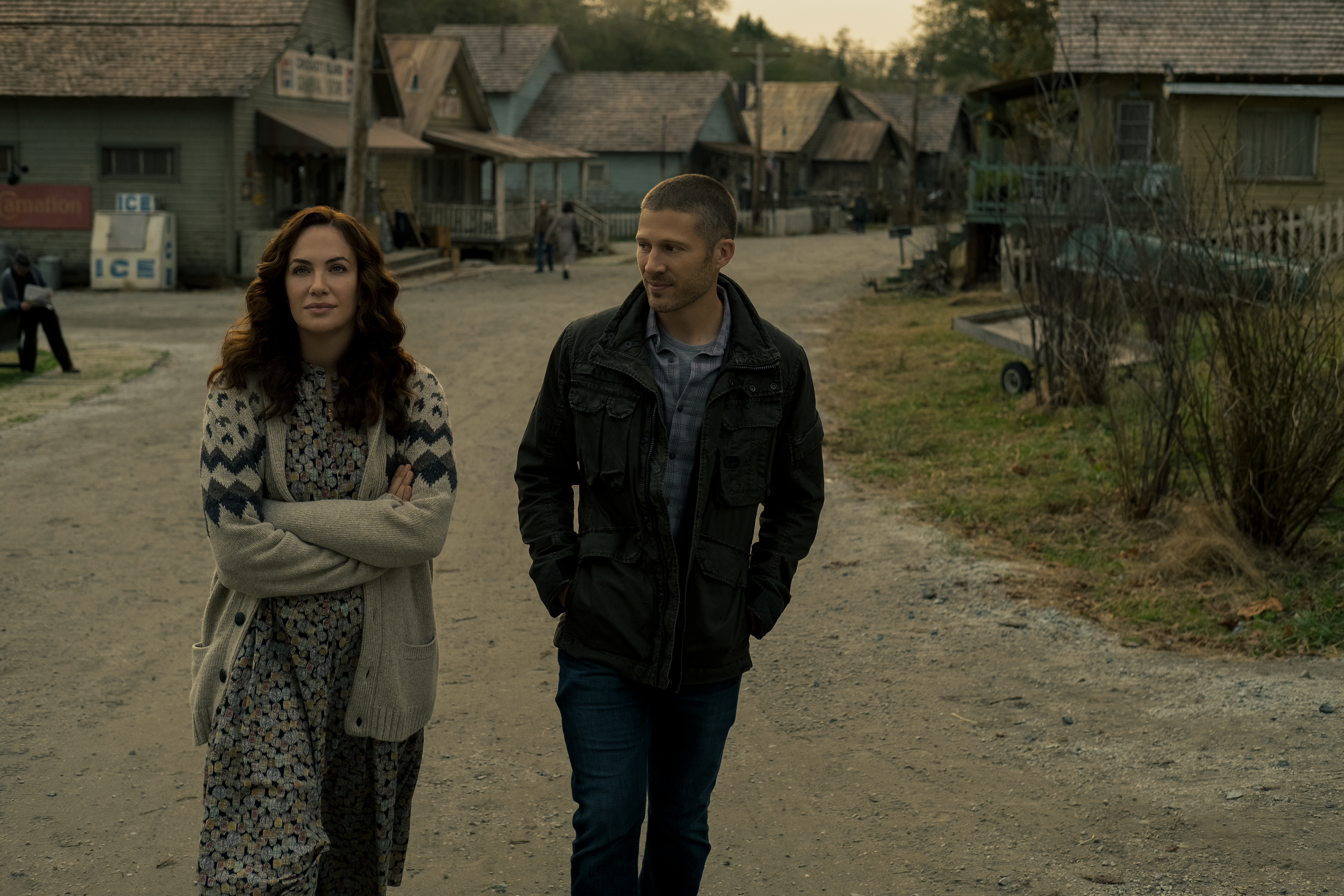
“What happens when you die?” is the question Erin asks her friend after an emotionally charged day. Erin discovered that morning she is no longer pregnant, even if there is no physical sign she miscarried. Earlier, she tells Riley how the baby saved her life because it led her to leave her abusive husband and return home.
Gilford spends most of this scene reacting to this story and there is strength in a performer who can give so much while saying nothing. It is during this intimate chat that Riley first mentions the recurring boat dream he thinks is a sign he will never leave the island. He agrees to pray with her and later on she wonders if he thinks she is silly for her faith. Nothing could be further from the truth, as he understands the comfort and wanting to find meaning in death, which prompts Erin’s question.
Taking a scientific approach doesn't reduce this monologue to academic jargon and it is still layered with poetic meaning. “Maybe my brain releases a flood of DMT. It’s the psychedelic drug released when we dream, so I dream,” he begins. This “dream to end all dreams” doesn’t last and when it is over he will cease to be. A wistful tone shifts to stifled tears when he comments there will be no memory that “I ever hurt someone. … That I ever killed someone.” His body will continue to nourish the world through biology and he will serve a purpose. “I’m like the stars that are in the sky. There one moment and then just scattered across goddamn the cosmos.”
There are echoes of the “dust to dust” religious sentiment but it is in direct contrast to Erin’s more hopefully heavenly vision of the end. This scene plays out in a different way in the finale, and Gilford and Siegel cement the intimacy and permanence of their bond no matter where they ultimately end up.
Sunrise Boat Ride (Episode 5, “Book V: Gospel”)
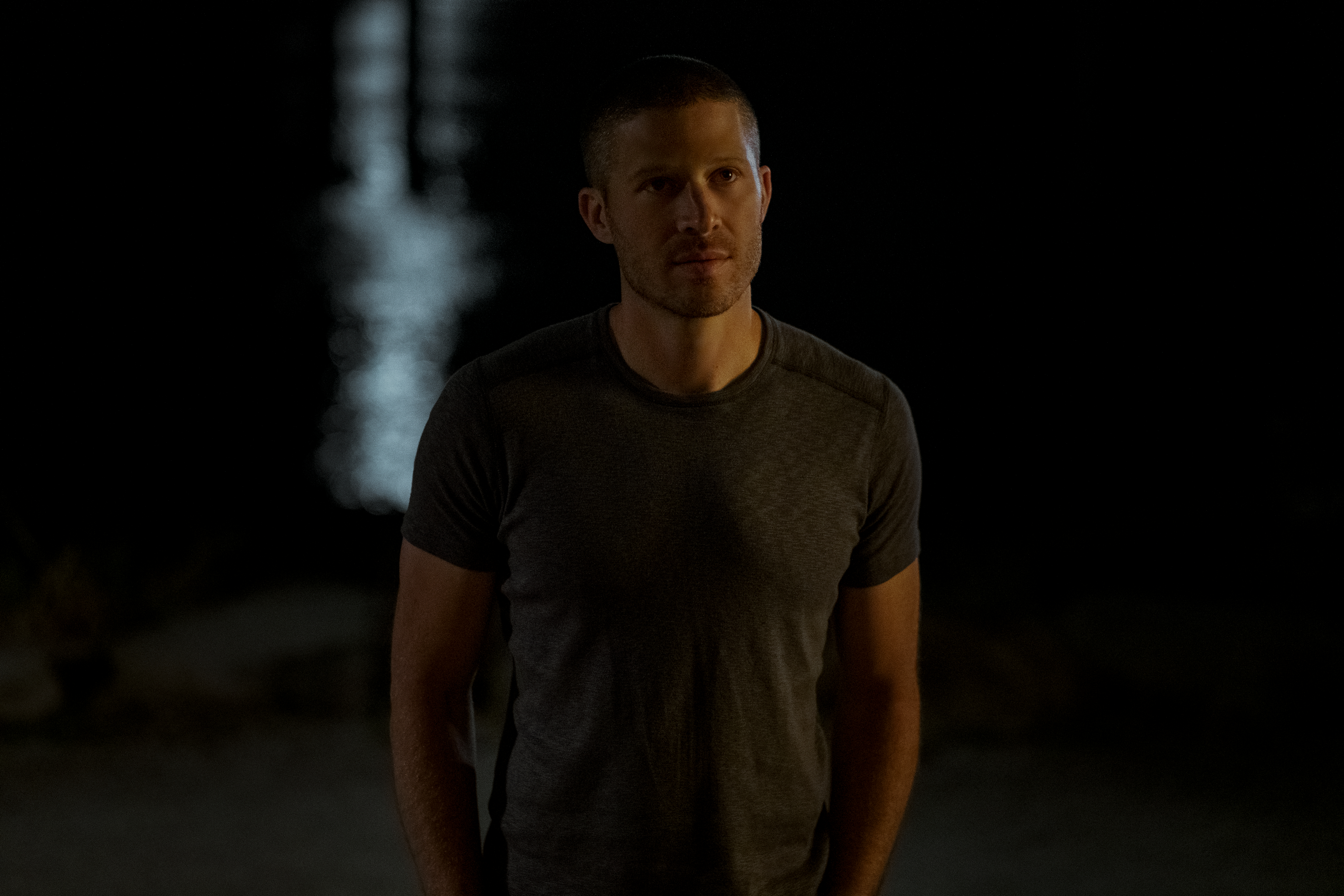
Instead of going to see Erin as was the plan, Riley heads back to the rec center because he is stuck on the lie Father Paul told. Big mistake, as he ends up getting gnawed on by the Angel and becomes a vampire of sorts. Riley can’t live a life like this, but he also knows he has to show Erin the danger in an extremely dramatic (and life-ending fashion).
The boat dream becomes his reality and he never makes it past the sunset, but he also does something he never thought he would. “I just exist now. That’s it. I have absolutely no purpose at all,” is what he previously told Erin; now this is far from the case.
“My dear, dear you,” is how she refers to him in a speech in which she explains she isn’t scared and will do whatever he needs. This boat moment is reminiscent of a teenage experience back when then they both wanted to escape and rowed out this far. As the sky begins to lighten Riley gets his strength together to tell her he loves her and that he is sorry for what she is about to see.
It is a heartbreaking end to a deeply intimate relationship of two people who understood each other down to their bones. “I did my best” he repeats softly twice before the sun rises, his teary apology for his life and Gilford’s knack for driving at the emotional core in understated fashion is a fitting end to this character’s journey. Siegel’s scream of horror as Erin sees her beloved burn up into nothing but ash is the haunting image that will linger in the memory.
Emma Fraser spends most of her time writing about TV, fashion, and costume design; Dana Scully is the reason she loves a pantsuit. Words can also be found at Vulture, Elle, Primetimer, Collider, Little White Lies, Observer, and Girls on Tops. Emma has a Master’s in Film and Television, started a (defunct) blog that mainly focused on Mad Men in 2010, and has been getting paid to write about TV since 2015. It goes back way further as she got her big start making observations in her diary about My So-Called Life’s Angela Chase (and her style) at 14.


